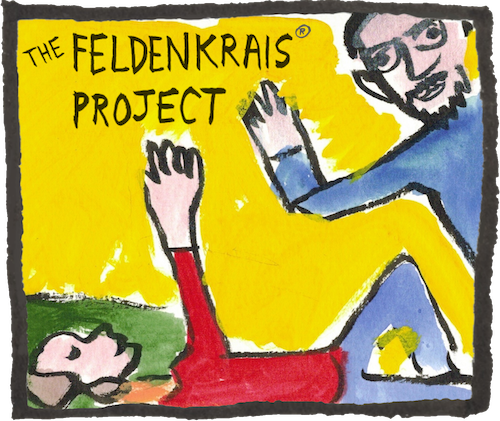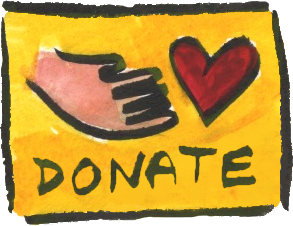This lesson starts very quietly as you learn to sustain a light but potent focus on an image of expansiveness. It later builds to movements that are very dynamic, even as stay present with that subtle attentional challenge. It’s asking: How can you continue to enjoy the ease and centered wholeness of the beginning as you expand into larger actions?
In this juxtaposition your continuous comfort is the key to maximizing your learning. Go gently into the riddles. Breathe spaciously, enjoy lengthening sensations and ground support as you move, and rest frequently. You can even pause the recording when you need a little more time, resting on your back if you wish.
The lesson is not asking you to force yourself into any positions or movements you find unpleasant. Feel free to touch and hold your leg in different places if you can’t reach your shin or ankle, or make other alterations as needed.
The final movements are complex. If you get confused, listen a bit further and see if they become more clear.
If you’re really stuck or want to review afterwards, read this (but try it from the audio first!):
Near the end of the lesson, when your home position is side-lying, holding your shin in the ceiling-side hand, and your head in the floor-side hand (elbow pointing where your nose is pointing). As you roll from side-lying alternately toward the ceiling and toward the floor, notice the concurrent game of diagonal folding and arching:
- As you roll toward the ceiling, the diagonal knee and elbow/head come closer together. This means you’re folding diagonally as you roll backward from side-lying.
- As you roll forward, chest turning more toward the floor, that same diagonal foot and elbow lengthen apart and lift – you’re now arching along the same diagonal that was just folding. As your foot lifts, see if you can find the support and length needed to lightly keep the arm/head combo airborne, even lifting it a little to look up the wall above you, with a long distributed arch all the way through your back and hip.
Together what this means is that your head airborne and supported (by your hand, and the ground forces in your torso) throughout the final movements. Go gently and experiment, and see the Related Lessons tab for another lesson that culminates in something similar.
The steady awareness of the tanden helps create an atmosphere of attending deeply to the sensory qualities of the learning process. Like “bell hand” lessons, awareness of the tanden’s gentle pulsing helps our attention stay with our whole self and our quality of movement. It helps us not fall into the trap of simply “performing” the large, complex movements by directing only our extremities.
This is an attentional strategy you can bring to almost any challenge.
To help me teach it, I borrowed some language and concepts about consciousness from my meditation teachers on the Waking Up app. I’m a few years into a regular meditation practice, and recently I’m struck by how similar meditative awareness is to my richest moments in the Feldenkrais Awareness Through Movement learning process.
For me, the same practice of steadily attending to the vastness of sensory experience in any moment or action – just wandering in the wonder of it – and using only the lightest attention needed for other matters like organizing movements and trying little experiments, or returning attention to my breath when thoughts arise, seems to produce the most satisfying and beneficial experiences in both Feldenkrais learning and meditation.
It’s not easy to find words, but I’m interested in this connection and will continue to pursue it. Please comment below if you’ve got interest, experience, or feedback along these lines.
This lesson is found in Patron Treasures, our collection of lessons exclusively for Feldenkrais Project Patron-level donors.
It was recorded during our Patrons Quarterly video call of August, 2024. Click that link to access an interesting discussion about this lesson.
(We recommend studying the lesson itself from the permanent audio version above. It’s been edited to improve flow, clarity, and sound quality.)
Members and Patrons. Learn more or login:
Members and Patrons. Learn more or login:




I appreciated the way you led us softly and steadily into the complexities of this lesson. Am left with the puzzle of how to lift my head AND elbow in the final position. Will explore again!
Great! Yes, that’s an interesting and unusual final action in the lesson. Best to explore your way into it, but don’t hesitate to check out the Clarifications tab if you like.
Great lesson for integrating so many parts of my body! Love the lightness of my middle! Thanks!
I’ve coaxed the most freedom within my frozen hips/pelvis/sacrum area from this session. I will definitely be doIng this on a regular basis. Thank you so much.